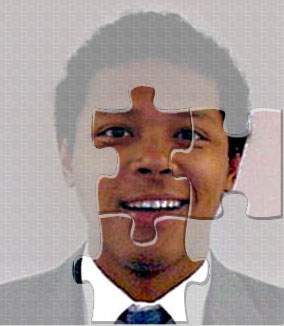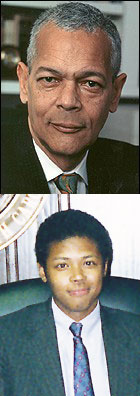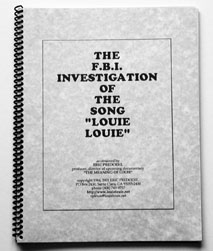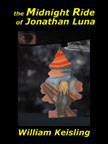Baltimore Sun finally asks hard questions
about Jonathan Luna's deathThe NAACP should take a long, hard look
at the life and death of Jonathan Luna
Posted July 30, 2005 -- A large-city American newspaper has published an article raising substantive questions about the FBI's handling of the investigation into the death of Baltimore assistant U.S. Attorney Jonathan Luna.
Justice delayed: Roll back the clock forty years, and consider that young Mr. Luna could have been young Mr. Bond.
In a column headlined, "Move to bring in the G-Men in Smoot case isn't promising," Baltimore Sun columnist Gregory Kane questions whether Baltimore civic leaders, including those at the NAACP, have misplaced confidence in the FBI. The FBI recently announced a probe into the murder of a Baltimore man, Raymond K. Smoot, who died on May 14, 2005, in the custody of Baltimore police.
(For those unfamiliar with Kane's work, click here to view an archive of his columns at the Sun; unfortunately, the column referred to here is, for some reason, unlisted in the online archive. We didn't learn about it until July 25, when a reader mailed us a hard copy.)
Raymond Smoot, columnist Kane explains, was "an inmate at Central Booking and Intake Center who died after being subdued by correctional officers.... After Smoot's death, two correctional officers told their union that they saw some of their co-workers kick, punch and stomp Smoot."
The NAACP soon requested the FBI investigate Smoot's death.
"(W)hy are so many people happy the FBI is involved in the investigation?" Kane asks. "State police, Baltimore's state's attorney's office and investigators from the public safety department are already looking into Smoot's death. What can the FBI turn up that they can't? Why is the organization assumed to be so competent? During the early 1960s, some of its agents wasted two years looking for obscene or subversive lyrics in the song 'Louie Louie.'
"Apparently, some folks haven't been checking the news reports lately," Kane goes on. "There are indications that the FBI might be the last law enforcement organization we want investigating Smoot's death. Let's take them one by one."
Kane recounts the March 2002 shooting of Joseph C. Schultz. Shultz was shot in the face by Baltimore Special Agent Christopher Braga, when Shultz, while riding in a car, was mistaken for a bank robber.
Now we come to the part of Kane's column interesting to us (though it's buried on page 4-B of the paper).
"Fast forward about six months from the Schultz shooting to October 2002," Kane writes. "Warren Grace, a local street thug who got picked up by Baltimore police, has become an FBI witness in a drug trial. While cooperating with the FBI, Grace managed to undo his home monitoring equipment.
"Why is the (FBI) assumed to be so competent? During the early 1960s, some of its agents wasted two years looking for obscene or subversive lyrics in the song 'Louie Louie.'"
"That's not exactly the way I want my tax dollars spent. Grace was a witness in a federal trial in which he testified against Deon Lionnel Smith and Walter Oriley Poindexter. Naturally, the case went south when defense attorneys Kenneth W. Ravenell and Arcangelo M. Tuminelli brought up that nasty little business about Grace. A plea bargain was arranged. Federal prosecutor Jonathan P. Luna was supposed to be working out the details when he went missing the night of Dec. 3, 2003.
"Luna was found dead the next day, lying face-down in a creek just off the Pennsylvania Turnpike. He had been stabbed 36 times. It's been 2 1/2 years since the FBI began investigating Luna's death. Agents know of no motive. They have no witnesses. But they do have some theories.
"One of those theories is that Luna committed suicide. That's right. A guy goes on a late night ride through four states, decides to stab himself with his own penknife - and pitches himself face first into a creek and drowns.
"If that scenario sounds a tad far-fetched, you might ponder why some are so happy the FBI is investigating Smoot's death.
"Barry Maddox, a spokeman for the Baltimore field office of the FBI, said the suicide scenario is one of three that agents have suggested. The others are murder and a random act of violence. Maddox said he couldn't comment on the Schultz case because it's pending. And Grace?
"'Informant matters,' Maddox said. 'We could never discuss anything like that.'
"Can you blame him?"
That's why, of course, congressional hearings are needed.
We at Yardbird certainly are glad that the Sun has at last ended its strange silence on the circumstances surrounding Luna's disappearance and death. Observers have been concerned by the Sun's ongoing silence.
Two year investigation: The bureau came to the conclusion that the song was "unintelligible at any speed"
Presiding at Luna's last trial, in December 2003, was federal District Court Judge William Quarles. Quarles also presided over a 2005 case involving the Sun's most crucial interests. Quarles wrongly upheld Maryland Gov. Robert Ehrlich's fascistic order forbidding state workers from talking to Sun reporters. We naturally wonder whether business interests have muzzled the Sun on the Luna case, and Quarles' role in it, and perhaps other issues vital to that deeply troubled community.
For months, behind the scenes, we at Yardbird have been encouraging the Sun, and columnist Kane (and other newspaper writers), to write about Luna, and the FBI's striking mishandling of the case.
For that matter, it's high time that Julian Bond, the chairman of the NAACP, take a long, hard look at the life and death of Jonathan Luna. Julian-- roll back the clock forty years, and consider that young Mr. Luna could easily have been young Mr. Bond.
Of course, readers of The Midnight Ride of Jonathan Luna, published by Yardbird Books, readily recognize that some of the information in Kane's column came not, as he writes, "from news reports," but from our book. We naturally welcome the attention to Luna's cause. But it's only fair, and professional, we think, that our work be given proper credit, and attribution, in the Sun's coverage.
And so the unseemly "mass media" news blackout of The Midnight Ride of Jonathan Luna continues.
We have some idea how Julian Bond, in 1965, must have felt when he was forbidden his rightful place in the Georgia legislature for taking a courageous and principled stand.



